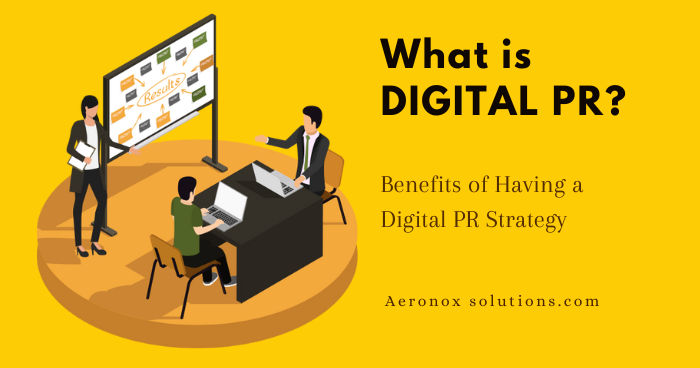What Is a Digital Marketing Agency? Your Key to Digital Success
In today’s fast-paced digital world, businesses need a strong online presence to succeed. That’s where a digital marketing agency comes in. But what exactly is a digital agency, and how can it help your business grow? What Is a Digital Marketing Agency? A digital marketing agency specializes in providing online marketing solutions, including SEO, social media management, PPC advertising, content creation, and web design. Whether you’re a startup or an established brand, partnering with the best digital agency service UK can help you reach your target audience, boost engagement, and drive conversions. Digital agencies come in various forms, each focusing on different aspects of online marketing. For instance: Full-service digital agencies provide end-to-end solutions, covering everything from SEO and content marketing to social media, paid advertising, and web development. Creative agencies prioritize branding, design, and storytelling to create compelling digital experiences. SEO agencies specialize in search engine optimization to boost organic traffic. Digital advertising agencies focus on paid campaigns across platforms like Google Ads and social media. With these distinctions, you might wonder: What’s the difference between a creative agency and a digital agency? Or between a digital agency and a digital marketing agency? Don’t worry—we’ll break it all down for you. Below, you’ll find a detailed guide to the different types of digital agencies and their services, helping you understand which one aligns best with your goals. But first, let’s clear up a common question: How does a digital agency differ from a digital marketing agency? Digital Agency vs. Digital Marketing Agency: What’s the Difference? While the terms digital agency and digital marketing agency are often used interchangeably, they serve distinct roles in the digital landscape. Understanding the difference can help you choose the right partner for your business goals. A digital agency is your go-to partner for building and establishing your digital presence from the ground up. Think of them as digital architects and designers. Typical Services: Web & App Development – Custom websites, e-commerce platforms, and mobile applications. UX/UI Design – Creating seamless, engaging, and intuitive user experiences. Branding & Creative Strategy – From logos and color palettes to messaging and brand voice. Digital Marketing (Secondary) – Some offer SEO, ads, or social media—but it’s not their primary strength. What Is a Digital Marketing Agency? A digital marketing agency specializes in driving online traffic, generating leads, and boosting conversions. They focus on performance and measurable growth. Typical Services: Search Engine Optimization (SEO) – Improve your rankings and visibility on search engines. Paid Advertising – Google Ads, Meta, TikTok, LinkedIn, and other platforms. Social Media Management – Strategy, content, and community engagement (organic + paid). Email & Content Marketing – Nurture leads, retain customers, and increase lifetime value. Key Differences at a Glance Aspect Digital Agency Digital Marketing Agency Primary Focus Building & branding digital assets Driving traffic and conversions Core Services Web development, UX design, branding SEO, ads, social media, email Best For Startups or rebranding projects Businesses scaling leads, traffic, and sales Outcome A strong, professional digital foundation Targeted growth and measurable ROI Which One Do You Need? Choose a digital agency if you’re launching a new brand, redesigning your website, or need a full digital overhaul. Choose a digital marketing agency if you already have a web presence but need help increasing traffic, leads, or sales. Pro Tip: Some full-service digital agencies offer both branding and marketing under one roof. Always ask about their core strengths before committing. Types of Digital Agencies: Your Key to Digital Success The world of digital marketing is constantly evolving sometimes faster than we can blink. New platform features, shifting algorithms, and groundbreaking tools like AI are rewriting the rules daily. In this dynamic landscape, finding the right digital agency is like assembling your own team of superheroes each with a distinct power ready to catapult your brand to success. Each type of digital agency brings a unique specialty to the table, much like members of an elite ‘Avengers’ squad. Let’s dive into the digital universe and discover which heroes you need by your side! What is a Digital Marketing Agency? A digital marketing agency is a specialized firm that helps businesses grow, engage audiences, and drive revenue through strategic online marketing. These agencies combine expertise in technology, data analysis, and creative storytelling to maximize a brand’s digital presence across search engines, social media, email, and other digital channels. Unlike traditional marketing firms, digital marketing agencies focus exclusively on the online space, using measurable, data-driven strategies to deliver real-time results and scalable growth. What Does a Digital Marketing Agency Do? Digital marketing agencies offer a wide range of services, including: 1. Search Engine Optimization (SEO) Optimizes websites to rank higher on Google & Bing Improves organic traffic through keyword research, content optimization, and technical SEO 2. Pay-Per-Click (PPC) Advertising Runs targeted ads on Google Ads, Meta, LinkedIn, and TikTok Maximizes ROI through bid management and conversion tracking 3. Social Media Marketing Develops organic and paid strategies for Facebook, Instagram, LinkedIn, and more Increases brand awareness, engagement, and lead generation READ ALSO: Digital PR | Benefits of Having a Digital PR Strategy | PR VS SEO 4. Content Marketing Creates blogs, videos, infographics, and eBooks to attract and educate audiences Strengthens brand authority and supports SEO efforts 5. Email Marketing Designs automated email campaigns for lead nurturing and sales Boosts customer retention and repeat purchases 6. Web Design & Development Builds fast, mobile-friendly, and conversion-optimized websites Enhances user experience (UX) to reduce bounce rates 7. Analytics & Performance Tracking Uses tools like Google Analytics and HubSpot to measure campaign success Adjusts strategies in real-time based on data insights Who Needs a Digital Marketing Agency? Startups needing rapid growth SMBs lacking marketing resources E-commerce stores optimizing conversions Enterprise brands scaling globally Local businesses improving online visibility What is a Creative Agency? A creative agency is a powerhouse of imagination and strategy, specializing in brand storytelling, visual identity, and innovative campaigns that captivate audiences. Unlike general marketing firms, creative agencies focus on big ideas, emotional connections, and memorable experiences—turning brands into cultural icons through art, design, and compelling narratives. What Does a Creative agencies Do? Creative agencies blend artistry







